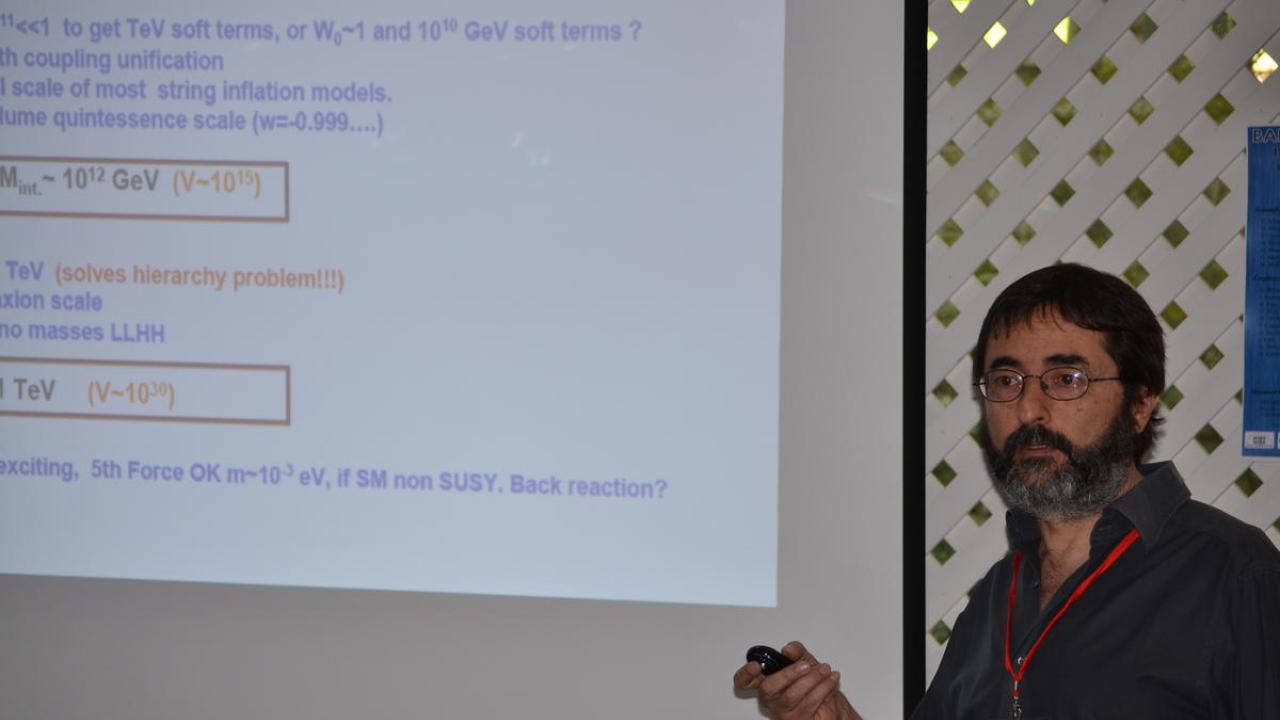
ICTP sponsored a recent workshop in Vrnjacka Banja, Serbia that was organized by the Southeastern European Network in Mathematical and Theoretical Physics (SEENET-MTP) Titled Beyond the Standard Models, the workshop aimed at bridging the gap between Southeastern and Western European scientific communities, featuring lectures by prominent physicists including ICTP Director Fernando Quevedo and ICTP research scientist Paolo Creminelli of the High Energy, Cosmology and Astroparticle Physics (HECAP) research section.
The topics covered at the workshop included Theory and (LHC) Phenomenology, Cosmology (Classical and Quantum, Inflation, Dark Matter and Dark Energy), Quantum Gravity and Extra Dimensions, Strings, Noncommutative Models for Planck Scale Physics. More information is available on the BW2013 - Beyond the Standard Models Website. Creminelli, along with ICTP postdoctoral fellow Emilano Sefusatti, lectured on cosmology after Planck. ICTP's High Energy, Cosmology and Astroparticle Physics research section is a SEENET-MIP partner, and as such has a history of supporting SEENET-MTP activities. Creminelli says that supporting science initiatives in Balkan states fits in perfectly with the ICTP mission.
"Balkan countries have good high school preparation, but they lack funding at the university and research level and this has resulted in brain drain," he says. "Moreover, we notice that ICTP has many more students and visitors from Asian and African countries as compared to the Balkan states."
Apart from giving lectures at the workshop, ICTP scientists introduced participants to the research carried out by HECAP and gave them an overview of ICTP's programmes. "We hope to attract more students from this region to join our programmes, and researchers for associateships and postdoctoral fellowships. Logistically speaking, it is a win-win situation for ICTP and students from Balkan states; many of the countries are just a few hours away by road and many Balkan institutes already have some connections with other Trieste System organisations, including SISSA," says Creminelli.
















